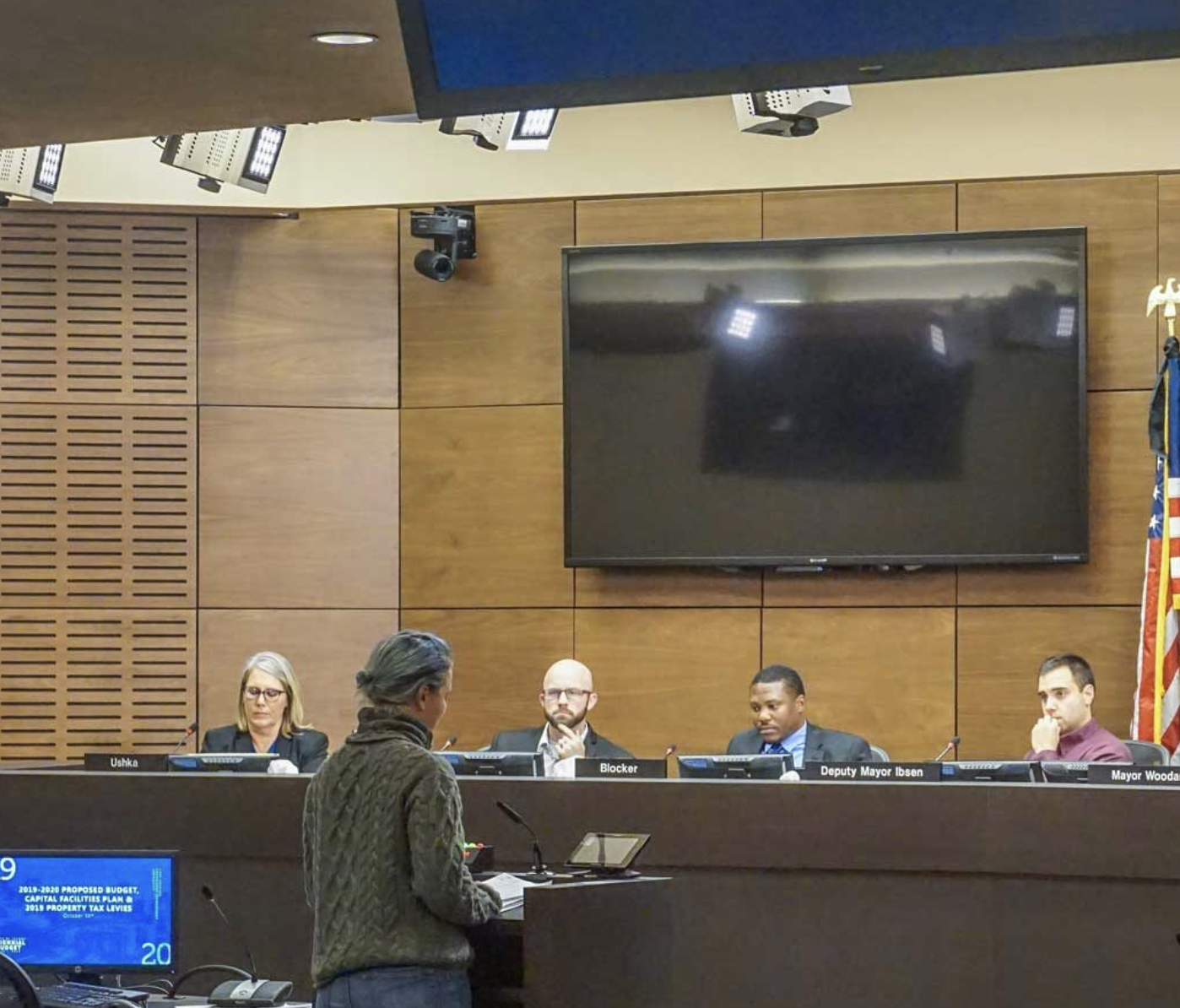THE FOSSIL FUEL FREE CITIES TOOLKIT
Once a city has endorsed the Fossil Fuel Non-Proliferation Treaty, there are several steps to take to align with a just transition away from fossil fuels.
In line with their climate ambitions, cities should strive to reduce fossil fuel consumption, phasing-out direct fossil fuel consumption from sources such as buildings and vehicles, while demanding a fair phase out of fossil fuel extraction.
Introduction to toolkit.
This toolkit summarises key elements our policy brief “Cities for a Fossil Free Future”, that highlights the importance of cities on the road to a global fossil fuel phase out. It contextualises their role in the movement to push for better national and international policies to fast-track a just transition away from fossil fuels, and reduce their dependence on fossil fuels. These include a range of ideas from enhanced city diplomacy to demand a phase out of fossil fuels and local efforts to remove the social licence of the fossil fuel industry, decarbonise and enable a just urban transition. Key recommendations are categorised into two groups -firstly, city diplomacy and social licence and secondly, sectoral decarbonisation, and are further categorised in the following areas:
This toolkit is broken down by sector chapters with key recommendations and case study examples:

The role of cities in the global just transition Cities face particular risks and vulnerabilities to the climate crisis, while also exacerbating it by simultaneously consuming a high proportion of the world’s energy and generating the majority of greenhouse gas emissions. The world continues to rapidly urbanise, and cities are not only home to the majority of the world’s population, but with that, huge drivers of climate emissions. Urban areas are experiencing first hand the effects of intensive fossil fuel use and are facing threats to the health and wellbeing of their populations from extreme temperatures and air pollution, to increased risks of disease and reduced availability of fresh water and food among many others. As a result, cities are in a unique and critical position when it comes to tackling the climate crisis - they are central actors in the delivery of climate action and they have the opportunity to demonstrate the bold leadership needed to transform our societies so that they are fit for the future.
1. City Diplomacy & Politics
Once a city has endorsed the Fossil Fuel Non-Proliferation Treaty, there are several actions that can be taken to pressure national level endorsements, both indirectly and directly. Cities can use their influence to call on their national governments to phase out fossil fuels and endorse the call for a Fossil Fuel Treaty. This can be facilitated by employing campaign resources and tactics aimed at engaging with national governments directly, as well as calling for a treaty publicly at key campaign moments and conferences, both as independent and as a cohort of cities and local governments for a fossil free future.
In order to effectively champion the Fossil Fuel Non-Proliferation Treaty, taking a clear stance to challenge the influence of the industry in political spaces and processes is essential. The fossil fuel industry undermines democracies by infiltrating politics through lobbying meetings, sitting on advisory boards, or sponsoring political campaigns, to influence decision-making, dilute climate policy and continue with business as usual. The fossil free politics movement campaigns to protect politics from fossil fuel influence, just as restrictions have been imposed to protect policymaking from the tobacco industry.
Recommendations for city diplomacy & political measures aligned with Fossil Fuel Non-Proliferation:
-
Pass a motion to formally endorse the proposed Fossil Fuel Non-Proliferation Treaty and communicate this support to relevant national policymakers
Formally invite and encourage other relevant Mayors and cities to endorse the call for a Fossil Fuel Non-Proliferation Treaty. These can be from geographically proximate cities, cities in shared city networks, sister cities, etc.
Urge regional and national governments to support a Fossil Fuel Treaty through an official letter
-
Become a SAFE (Standing against Fossil Fuel Expansion) city by passing a resolution in the same motion as the Fossil Fuel Treaty endorsement, or after, while also passing actionable SAFE Cities policies
Join initiatives such as the ICLEI 100% Renewable Cities & Regions Energy Compact, the Powering Past Coal Alliance and networks such as Energy Cities
Support city diplomacy initiatives pushing for a financed, fair and fast phase out of fossil fuels
-
End fossil fuel industry access to political decision-making
Address conflicts of interests of decision makers
End preferential treatment of the fossil fuel industry
Reject partnerships with the fossil fuel industry and ban any political donations from fossil fuel companies
Examples in City Diplomacy & Politics
2. Culture & Society
The fossil fuel industry uses many of the same tactics to gain social licence as other industries with a history of promoting harmful products, such as tobacco, from influencing science, policy-making and public understanding. The fossil fuel industry and its extensive PR and advertising campaigns are a major barrier to progress on climate issues. Fossil fuel trade associations far exceed the PR and advertising spending of renewable energy trade associations. They are also intensively portraying themselves as positive and proactive on the climate change emergency.
Fossil fuel advertising normalises and promotes unsustainable behaviour, actively undermining current climate policy and noted that major government investments are needed to counteract the negative effect of fossil advertising.
Taking a stand on fossil fuel advertising and high carbon advertising is a concrete step that cities can take to remove the social licence of the industry, and clearly take a stand on the need for a phase-out of fossil fuels and fossil-fuel-intensive lifestyles.
Recommendations for culture & society measures aligned with Fossil Fuel Non-Proliferation:
-
Restrict the use of public advertising for the fossil fuel industry (oil, coal, gas)
Include ad bans for high carbon products such as air travel, petrol and diesel intensive vehicles like SUVs
-
Exclude fossil fuel companies from sponsoring city affiliated cultural and sports events, such as the city marathon or festival
Urge or mandate all cultural, educational and sports institutions in your city to break ties with the fossil fuel industry by ending partnerships and sponsorships
Implement a tax on large scale sporting or cultural events that receive sponsorships from fossil fuel or carbon intensive companies, redistributing funds towards local grassroots sports organisations
Develop new subsidy programs to support local organisations and institutions to break ties with the fossil fuel industry
-
Elevate your concerns of fossil fuel advertising to the national government, encouraging national policies to ban advertising and cultural influence of the industry
Collaborate with civil society organisations campaigning for an end of the fossil fuel industry’s influence in society and culture
Promote your city a Fossil-Fuel Non-Proliferation Free Zone by displaying signage highlighting the need for a phase out of oil, coal and gas
Leverage public billboards for city wide communications about climate change and engage with creatives on campaigns such as heat mitigation messaging and active travel benefits
Create prominent public communications moments undermining the social licence of the fossil fuel industry such as speeches, written opinion pieces and events
Examples in Culture & Society
3. Urban Economy
Ensuring that cities shift from an economy run on fossil fuels to one run on sustainable and diverse energy sources is a climate imperative, as well as an economic one. Cities that take this step sooner rather than later will be best positioned to take advantage of the green transition, offering a more resilient, healthy and liveable environment, a dynamic, innovative and green job market and protecting assets and investments in the long term.
Divesting from fossil fuels and increasing sustainable investments in climate solutions is essential in order to have a comprehensive climate strategy. Several cities around the world are already committing to a divesting from fossil fuels, with impacts and key learnings already emerging. Cities, especially in the Global South, should also ensure that the informal sector is included in plans to shift economies away from fossil fuel intensive practices.
Finally, it is important to note that communities nearby fossil fuel production sites often receive revenues generated by leases and licences for fossil fuel exploration and production, which can be crucial for supporting local schools, hospitals, roads and other public services. This means that significant support from national governments will be needed to diversify income streams from sources for dependent communities to survive and thrive.
Recommendations for urban economy measures aligned with Fossil Fuel Non-Proliferation:
-
Engage the city pension funds to encourage them to divest from fossil fuels
Establish exclusion and inclusion criteria and review investment policies
Develop subsidy and grant programmes to stimulate sustainable initiatives and businesses
Accompany businesses in the transition away from carbon intensive industries, towards renewable and sustainable practices
Call on national governments to reallocate fossil fuel subsidies to green innovation, including renewable energy storage, clean energy systems, and skilled workforce development
-
Foster innovation by promoting new solutions and innovative financing partnerships to address the challenges of climate change
Engage with unions and workers, including informal workers, to develop effective and co-create programmes and policies
Provide financial incentives such as subsidies to access education or retraining for workers, as well as tax deductions for training or wage subsidies for green sector employment to small and medium size enterprises
Include informal sectors in plans and policies towards a shift towards a green economy
Examples in Urban Economy
4. Transportation
Transportation is the fastest growing source of emissions, contributing to about 14% of annual emissions (including non-CO2 gases) and approximately 25% of CO2 emissions from burning fossil fuels. Automobility and its inextricable relationship to the rise of fossil fuels, notably petroleum which supplies over 90% of the total energy used by world transport, has reshaped cities, culture, political power, social relationships and population health.
Several trends are emerging that signal a shift towards less fossil-fuel-intensive modes of mobility. Researchers have found that the only way to prevent the worst effects of climate change is to engage in a comprehensive strategy of compact, mixed-use cities built around walking, cycling and public transit combined with investments in electric vehicles. In many cities around the world, these strategies are being enacted at pace and scale.
From electrification of public bus fleets to the emergence of Bus Rapid Transit and E-Bus Rapid transit, the explosion of cycling lane construction and programmes during the COVID-19 pandemic and the increased legitimisation of tactical and temporary urbanism strategies such as open streets, school streets and the rise of low-emission zones; many cities understand the importance and co-benefits that a decarbonised transportation system offers.
Recommendations for urban transportation measures aligned with Fossil Fuel Non-Proliferation:
-
Plan and develop regulatory measures such as Low-Emission Zones or Zero Emissions ones to restrict access to sub-categories of vehicles based on environmental performance
Expand and accelerate the reclaiming of urban space from cars through the removal of parking spaces, development of bicycle networks, slowing vehicle speeds and pedestrianising streets and plazas
Establish taxing for specific vehicle pollutants and types such as SUVs
-
Impose a tax on freight that carries fossil fuel products and prohibit the bulk loading of crude oil onto marine tank vessels or rail facilities
Support national calls for short haul flight bans, and establish a ban on large cruise ships
-
Expand and electrify bus fleets with a focus on accessibility
Promote Bus Rapid Transit, especially E-BRTs and seek financing for large BRT projects
Recognise, collect data, and support electrification and vehicle upscaling of existing informal transport
-
Promote cycling through a range of infrastructural measures from bicycle lanes to bicycle share systems as well as social and cultural programmes such as bicycle education, awareness and access
Develop temporary measures that activate streets for people such as open-street/car free days, school street closures during drop-off and pick-up times
-
Accelerate a just transition to zero-emission delivery vehicles
Increase the use of electric-assist cargo bikes and micro-hubs
Place a moratorium or permanent prohibition on new warehouse developments or implement conditional use permits that require electrification, air pollution control and specific labour standards
Examples in Transportation
5. Energy & Built Environment
Cities consume over two-thirds of the world's energy and have a critical role to play in the global energy transition across buildings, heating/cooling, industry and power grids. The potential to substitute fossil fuels in such end-use sectors has been identified as significant, accounting for the majority of potential emission reductions.
Buildings in particular account for more than half of average energy use in cities, making the case for building decarbonisation essential. This is not only vital for all buildings of the future, but also calls for retrofit of the current building stock.
Fossil gas, or ‘natural’ gas, is often presented as an alternative to coal and a bridge fuel to renewables. However, it is a key part of the issue. C40 has conducted research showing that continued use of gas has negative air pollution and health consequences, while being non-competitive economically in the long run. Additionally, in many cities in the global south, energy access, reliability and affordability are still overlooked urban problems. In those contexts, a rapid transition away from solid fuels for cooking, alongside reducing dependence on generators, improving energy access by scaling up distributed renewable energy within cities and increasing energy efficiency of buildings and appliances is key.
Recommendations for built environment measures aligned with Fossil Fuel Non-Proliferation:
-
Halt the construction of new gas stations within municipal boundaries, and prevent currently-existing stations from adding more pumps
End oil and gas drilling within the municipal boundaries
Impose restrictions on supply chain infrastructure such as bulk fossil fuel storage, pipelines, refineries, power plants, pipes and/or compressors, oil train terminals, fossil fuel loading and unloading
-
Leverage solar photovoltaic (PV) systems & heat pumps
Reduce dependency on gasoline and diesel backup generators
Support a transition away from solid cooking fuels
-
Place requirements for all-electric heating and cooking in new buildings
Accelerate the procedure for the installation of recharging points in new and existing residential and non-residential buildings, especially of co-owners associations
Increase energy efficiency via measures that include building codes for new construction, building performance standards and energy-efficient appliance standards
-
Leverage urban health arguments to challenge and reclaim fossil fuel infrastructure
Integrate land use and mobility, and adapt zoning to prioritise community wellbeing and hinder fossil fuel and carbon intensive infrastructure
Prioritise projects in communities that have faced historical marginalisation, dispossession, and disinvestment, in particular near airports, highways, or industrial facilities
Examples in Energy & Built Environment
6. Waste
As resistance to fossil fuels mounts globally, petrochemical companies are pushing plastics. 99% of all plastics are made from fossil fuels and plastics contribute to climate change throughout their life cycle, from fossil fuel extraction to plastic manufacturing and the disposal of plastic waste.
The OECD’s Global Plastics Outlook Database estimates that only 9% of the plastic ever produced has been recycled. Another 19% is incinerated, 50% ends up in landfills and 22% evades waste management systems entirely by going into uncontrolled dumpsites where they are burned in open pits or are being dropped into oceans, rivers and lakes, especially in poorer countries.
Exiting the plastics crisis, just like the phasing out of fossil fuels, is a highly complex global issue that involves many stakeholders. Cities and subnational governments are at the frontline of the plastic pollution crisis and have important contributions to make to ensure the health and wellbeing of their communities.
Recommendations for waste management measures aligned with Fossil Fuel Non-Proliferation:
-
Ensure proper incentive and management structures are in place to tackle noncompliance and “black markets”
Develop community campaigns to sensitise communities about environmentally friendlier waste disposal practices, re-us, and recycling
Promote and distribute reusable and refillable products to reduce plastic waste
Avoid false solutions to waste management such as waste incineration and chemical recycling
-
Phase out facilities within municipal boundaries such as petrochemical plants and plastics manufacturing
Support moratoria on new or expanded fossil fuel and petrochemical operations, limit the areas where these operations can take place and require and mandate practices and procedures that protect the human rights of frontline communities
Support efforts to shape the market for plastic alternatives to enable sustainable substitutions
Allocate funding to community-based organisations for public and health care provider awareness and outreach campaigns on the health harms of exposure to fossil fuel and petrochemical operations, including maternal, reproductive and newborn health, cancers and respiratory ailments.
-
Offer skills and livelihood-building opportunities for informal workers
Improve working conditions, providing supportive infrastructure and equipment
Support a fair and equitable transition for workers, communities, and industry away from fossil fuels and petrochemicals toward a renewable green economy
-
Join the Global Coalition of Local and Subnational Governments to end Plastic Pollution
Generate awareness about the Global Plastics Treaty
Examples in Waste Management

ConclusionsThere exists both an opportunity and responsibility for city leaders to leverage their influence and take action in the global movement to phase out fossil fuels and achieve a just transition to clean energy for everyone. Cities are often the first responders to the climate emergency and they understand that phasing out fossil fuels is an existential imperative for humanity. Together, they can play an important role in fostering international cooperation to accelerate a transition to renewable energy for everyone, end the expansion of coal, oil and gas and equitably phase out existing production in keeping with what science shows is needed to address the climate crisis.
How to get Involved-
This draft motion has helped Vancouver, Los Angeles, New York and Barcelona draft their own motions appropriate for their local jurisdictions. This motion can be used as a template for cities, local councils and sub-national governments. Formats of municipal government motions differ significantly from region to region, so use this as a sample baseline rather than a finished product.
Download template endorsement motions: In English here, en español aquí, en français ici
Click here to download the Barcelona motion and here to download the Los Angeles motion.
-
After a city has endorsed, many have sent a formal letter to their Head of State or national Climate/Energy Ministers, informing them of their endorsements and calling on them to act. Others have also put out announcement videos, press releases or op-eds to maximise the momentum their endorsement can generate.
Download: In English here, en español aquí, en français ici
-
Throughout the year, the Fossil Fuel Treaty campaign participates in city focused events and global climate gatherings. Cohort cities have opportunities to share their knowledge and experience and leverage their diplomatic influence to grow the campaign for a Fossil fuel Treaty. Champion cities also play an active role in encouraging other cities to join the cohort.
-
This brief has outlined key sectors that can be decarbonised and acted upon to remove the social licence of the fossil fuel industry. Moving past a symbolic endorsement to longer lasting policies and programmes that support a fossil fuel free future is an important demonstration of leadership through action. The Fossil Fuel Treaty network can support implementation in a number of ways.





























